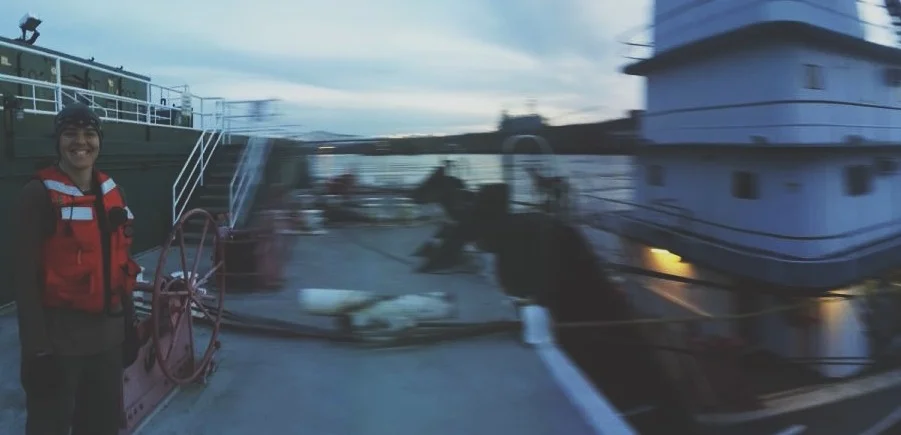I don’t know what to tell you, my darlings. Everything I start to write sounds too cheerful, or wallows in self-pity. The truth of it is, you’ll be lonely. You’ll feel abandoned by the world, even though you’re the one who hopped on board a ship bound for the deep blue. Maybe you’ll cry, or feel numb, or get angry. You might try to bond with your crew (and succeed, or be rejected, or have it confused with flirting). You’ll stare compulsively at your phone, even when it has no reception. Personally, I get brittle and touch-starved and end up buying a lot of weird things on Craigslist.
But hold on. There are people who love you, and their love is a cliched nautical metaphor! Like an anchor in a storm, it just gets stronger when you let out more scope. They will text you horrible details about their office jobs. They’ll rejoice if you show up on their doorstep reeking of gurry and in mortal need of a nap. They’ll give you rides to the dock at ass o’clock in the morning, and collect your mail for you so you won’t end up like that poor, nameless sailor who used my Post Office in San Diego. His friends signed him up for the Bacon Of The Month Club while he was circumnavigating South America.
My point here is that there are up-sides to the weeping and the solitude. Shore leave feels urgent, and that urgency can spark better, more vibrant connections with other human beings. Maybe you’ll stop putting off calling your mother, because you have to do it before you ship out again. You’ll have a hard time keeping acquaintances, but you’ll fly across the country to laugh with an old sweetheart. You'll find a sort of peace in it, some kind of rhythm or a set of habits that help you through the emotional swells.
And maybe most importantly, you’ll meet other mariners who you can call at 3am when you’re on wheel watch in shitty weather, because they are, too. We’re out here with you, scared and sleepy, somewhere in the darkness or squinting under the endless sun, and we have your back.
